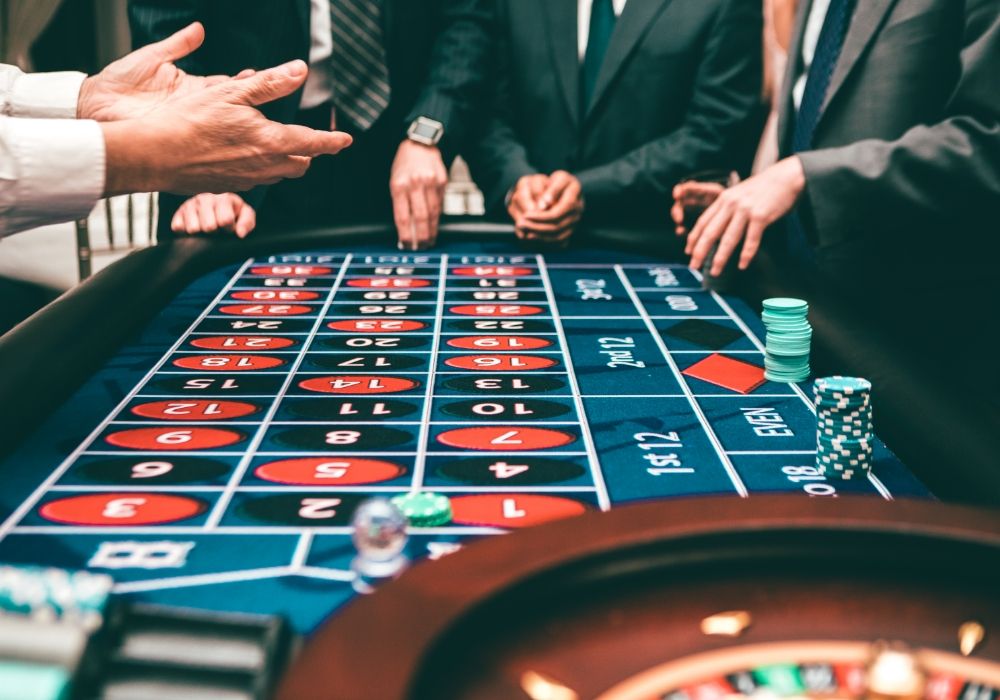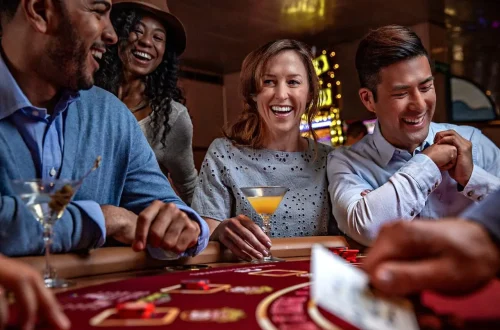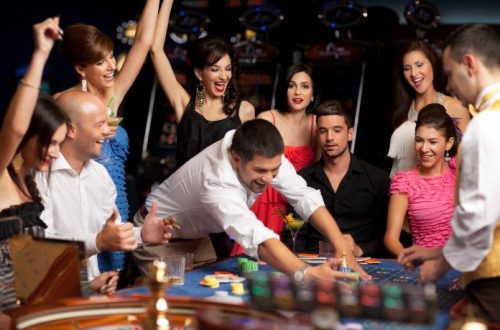
Excitement and Escape from Predictability: Why Casino Gambling Is Perceived as Freedom
Freedom, in One Click
Modern life is scheduled to the minute – alarms, calendars, KPIs, chore lists. In that clockwork world, a bet can feel like cutting the power to monotony. Platforms where you Casinoly login are less about jackpots than about crossing a threshold: from planned outcomes to uncertain ones, from measurable progress to meaningful moments. Players say they feel “free” when they gamble – not because money is guaranteed, but because, for a while, predictability loosens its grip. This article explores that feeling with unusual lenses: neurobiology and predictive processing, design and soundscapes, anthropology and philosophy, and micro-rituals that make randomness feel like self-rule.
The Weight of Predictability – and Why We Flee It
Predictability is a double-edged sword. It protects us (paycheck, routine, hygiene) and quietly flattens us (staleness, emotional blunting). When every day rhymes with the last, novelty-starved brains crave entropy – patterns that don’t repeat. Gambling supplies high-intensity uncertainty in an instantly accessible container. The rules are knowable; the outcomes aren’t. That blend – structure at the edges, chaos in the middle – feels safe enough to try and wild enough to matter. The appeal is rarely “money only.” It’s the chance to reintroduce surprise and feel time thicken with consequence.
Freedom as Uncertainty: A Paradox That Works
We usually define freedom as “control.” Yet players often report peak freedom in the exact opposite – when the outcome is out of their hands. Why? Because the freedom they experience isn’t freedom over events; it’s freedom from repetition. Philosophers would call it liberation from necessity: an intentional migration from the certain to the possible. You don’t command the wheel or the reels; you command your crossing into possibility. That chosen exposure to chance is the paradox at the core of gambling’s allure.
The Neurobiology of Unpredictability: Dopamine’s Favorite Story
Dopamine doesn’t merely reward success; it anticipates uncertainty. Variable, hard-to-predict outcomes – like those in casino games – activate reward pathways more reliably than guaranteed prizes. This “uncertainty bonus” sharpens attention, boosts motivation, and heightens the subjective vividness of the moment. Freedom here is a neurochemical texture: the brain tags a space of risk as more salient, more “alive,” because the next second could rewrite the story. Predictable tasks fade into the background; probabilistic ones glow at the edges of awareness.
Process Utility: When the Journey Pays Better Than the Destination
Classical economics focuses on outcomes (utility from winning). Behavioral science adds process utility: the value of doing the thing. In casino play, process utility can rival or exceed outcome utility. The short tension before a result, the hum of anticipation, the little choreography of placing a bet – these are pleasures in themselves. Players aren’t just purchasing a chance at returns; they’re purchasing arc, suspense, and meaning-dense seconds. Money is the scoreboard; the real sport is the felt arc between “bet” and “result.”
Predictive Processing: Our Brains Prefer Edges to Plateaus
Under the predictive processing account, brains constantly model the world, minimizing surprise by updating beliefs. Too little surprise? Boredom. Too much? Panic. Casino games inhabit the “interesting middle,” where prediction is possible but never certain. That “edge of prediction” keeps the brain engaged – error signals updating models, attention tuned to cues, arousal calibrated to the felt ambiguity. Freedom is experienced as relief from over-modeled days: the brain isn’t stuck; it’s surfing.
Agency Theater: The Power to Choose Risk
Players can’t command outcomes, but they do control exposure. Stake size, timing, game selection, session length – these levers create a theater of agency. Choosing risk voluntarily grants a sense of authorship. You decide when to enter, when to escalate, when to cash out. That authored exposure is crucial: imposed risk feels like anxiety; chosen risk feels like freedom. The difference is not in the mathematics of the game but in the psychology of consent.
Illusions of Control – And Why They Still Feel Free
From “lucky seats” to stopping reels “at the right time,” human cognition weaves narratives of influence. Yes, they’re illusions. But they serve a function: translating blind randomness into a ritual of personal participation. The button press or chip placement becomes a small ceremony of self-involvement. Illusion doesn’t create control; it creates ownership – and ownership is a core ingredient of the subjective experience of freedom.
Time Thickens: Flow, Focus, and the Stretchy Minutes of Play
Casino play often induces flow – deep focus, narrowed awareness, altered time sense. Minutes stretch in the half-second before a card flips and compress during streaks of action. That time distortion isn’t a trick; it’s a hallmark of meaningful engagement. People measure freedom not just in choices but in the density of lived time. When time is thick, life feels larger. Predictable routines thin time; suspense thickens it. Gambling engineers thick time in compact, repeatable doses.
Sound, Haptics, and Lighting: The Sensory Grammar of Liberation
Freedom has a sound. Rising arpeggios before a result, gentle pads during lulls, micro-chimes for small wins – all sculpt expectation and release. Haptic confirmations on mobile, subtle light blooms at reveal, dynamic visual micro-rewards on near-misses – these are not tacky add-ons but a grammar that synchronizes body and game. When sensory cues line up with anticipation, players feel aligned with the moment. Alignment + uncertainty = the felt aesthetic of freedom.
Frictionless Interfaces and the Feel of Self-Direction
Choice architecture matters. Clean UI, instant confirmations, transparent bet modifiers – these reduce friction, making the act of deciding feel effortless. The paradox of good design is that it makes you feel like the designer. When you can shape pace, denomination, and modality without cognitive sludge, autonomy becomes tactile. You aren’t herded; you’re piloting – another layer in the layered experience of freedom.
Solo Freedom vs. Social Electricity
Casinos offer two distinct freedoms. Solo freedom: privacy, no judgment, fully self-paced play – intimate and introspective. Social electricity: live tables, chats, shared gasps – extroverted and performative. Both can read as “freedom” depending on temperament. The first is sovereignty; the second is solidarity. A sophisticated platform supports both – letting players toggle seamlessly between inner focus and communal spark.
Micro-Rituals: Tiny Scripts That Turn Chaos into Choice
Tap, breathe, glance – spin. Place chips clockwise, never on corners first, pause three seconds before confirming. Micro-rituals tame uncertainty without neutering it. They’re personal superstitions that structure a moment so it feels chosen, not random. The ritual doesn’t alter probability; it alters posture – how you meet it. Freedom isn’t only the absence of rules; it’s the presence of your rules.
Mobile Micro-Escapes: Freedom in the Palm of Your Hand
Because play now lives on phones, freedom is portable. Two minutes in a taxi can hold a full arc of anticipation and resolution. Micro-sessions democratize the “break from predictability” without demanding a whole evening. The benefit: autonomy with minimal disruption. The risk: boundaries blur. Designing conscious edges – session timers, natural breakpoints – keeps micro-escapes from becoming ambient background habit.
Exploration vs. Exploitation: A Reinforcement-Learning Lens
In RL terms, everyday life leans toward exploitation (repeat what works). Gambling restores exploration (sample uncertainty to discover). Humans need both. Starve exploration and you get restlessness; starve exploitation and you get chaos. Casino play, done well, is a scheduled exploration window: a sandbox for risk appetite so the rest of life can stay optimized. Freedom here is the right to explore without having to burn down your routines.
The Freedom Premium: Why People “Pay” for Possibility
Prospect theory shows we overweight small probabilities and underweight large ones. That “error” isn’t simply bias; it’s the freedom premium – willingness to exchange expected value for possibility value. Players knowingly accept statistical disadvantage to purchase a non-monetary good: the right now experience of maybe. In other words, they buy “perhaps” with “certain.” That trade is rational on different axes: meaning, mood, memory.
Near-Misses: Ambiguous Failures that Keep Doors Open
Near-misses are losses that act like maybes. Two jackpot icons and the third just above the line; the ball dropping next to your number. Ambiguity sustains counterfactuals (“so close”) and extends narrative tension. Clear losses close the story; near-misses keep it alive. Freedom thrives on open doors. The near-miss is an architectural feature that props the door ajar a few more spins.
Identity Work: Reclaiming the Risk-Taker Self
Many adults park their daring at the office door. In play, they get to reclaim an identity: the person who leaps, who decides under uncertainty, who lives by instinct without briefing decks. Identity isn’t just believed; it’s performed. Casino nights become stages for that performance – scenes where the conservative CFO or meticulous nurse remembers the inner gambler. The performance, paradoxically, helps balance the offstage self.
Anthropological Lens: Liminoid Zones and Secular Magic
Anthropologist Victor Turner called ritual thresholds liminal – in-between spaces where norms loosen and transformation happens. Casinos are liminoid: elective, leisure versions of that passage. You step across, put on a provisional identity, traffic with chance, then step back out. In a disenchanted world, this is secular magic: systems designed to reliably produce unreliable outcomes. People don’t just want results; they want contact with the mysterious under safe lighting.
Money as Symbol: From Currency to Story Fuel
Cash buys groceries. Chips buy stories. Players routinely convert money into narrative capital – memories, anecdotes, “that night” lore. The $100 spent on a date, a concert, or a session can be good value if it becomes a story you tell for years. Gambling’s narrative yield is unusually high because uncertainty generates plot. Freedom is partly the right to invest in stories instead of things.
After the Win: Why Freedom Sometimes Prefers “One More”
Why don’t people leave after a big win? Because closure can feel like a cage when momentum is peaking. The brain reads streaks (even in random contexts) as invitations. Players aren’t always chasing more money; they’re defending state – the elevated, vivid freedom-state of uncertainty surfing. Ending on top feels logical; ending while it still feels alive feels irresistible. This is the freedom/discipline hinge where healthy guardrails matter most.
Aesthetic Freedom: Theme, Narrative, and Character
Game themes aren’t decoration; they’re permission slips. Mythic quests, noir heists, neon futures – each skin lets players inhabit different flavors of freedom: transgression, adventure, mastery. Narrative overlays provide gentle teleology (collect, unlock, level) that frames randomness with purpose. Even meta-progression (missions, badges) can serve autonomy if it’s opt-in, not coercive. The rule of thumb: invite identity play; don’t extract attention.
Choice Architecture: How Design Can Honor – or Undercut – Autonomy
Three expert heuristics:
- Transparent stakes: Always show coin-of-the-realm equivalents to prevent “phantom money” detachment.
- Natural breakpoints: Insert soft stops after bonus rounds or milestones to make quitting dignified.
- Intentional friction: One extra click to raise stakes is good friction; zero friction is only good for the house.
Players experience freedom when systems make room for no as elegantly as for yes.
The Social Physics of Tables: Freedom Through Witness
At live tables, strangers become temporary accomplices. Shared near-misses and improbable hits create collective effervescence – Durkheim’s term for communal emotional peaks. Freedom here is social: the right to leave roles at the door and join a chorus of gasp and laughter. Even in digital live-dealer rooms, emotes and chat reconstruct this spark. Solitude gives sovereignty; witnesses give lift.
Micro-Case Vignettes (Composite, Illustrative)
- Maya, 29, ICU nurse: Schedules two 20-minute micro-sessions after shifts. “I control my window. The rest – the result – I let go.” Freedom = authored exposure.
- Andrei, 42, CFO: Monthly in-person blackjack with friends. “I make a hundred decisions at work. Here, I make a few, and the universe makes the rest.” Freedom = surrender of hyper-control.
- Lena, 35, designer: Slot aesthetics matter. “Some themes unlock a bolder version of me.” Freedom = safe identity experiments.
Different doors, same room: chosen unpredictability.
Red Flags: When Freedom Tips into Compulsion
Freedom is a feeling; compulsion is a loss of it. Watch for:
- Time loss you didn’t plan (“Where did three hours go?”)
- Stake drift beyond your pre-set bands
- Mood repair gaming (using play to numb)
- Secretiveness about sessions or losses
- Chasing yesterday’s state rather than enjoying today’s session
Symptoms don’t make you “bad”; they invite better structure.
A Player’s Freedom Toolkit (Practical, Not Preachy)
- Write your rule of two: two session goals (fun metric + hard stop). Example: “80 minutes or +€120/–€120, whichever first.”
- Plan the last hand first: pick the ritual and stick to it – ending becomes an act, not a feeling.
- Use dual displays: show stakes both as credits and in your native currency.
- Insert altitude checks: every 15–20 minutes, ask “Would I start now at my current bankroll?” If not, stop.
- Celebrate exits: screenshot the cash-out, text a friend, or write a one-line session note. Make leaving its own tiny win.
Freedom loves form.
Industry Guardrails That Actually Help
Platforms that genuinely respect autonomy typically implement:
- Session timers you set, not just the platform
- Stake-increase friction (confirmations, brief delays)
- Reality checks with simple, non-scolding language
- Withdrawal locks that separate “banking” from “betting” impulses
- Contextual prompts tied to your own limits (“You planned 60 minutes; you’re at 55”)
Design that honors no creates trust – and longer, healthier relationships.
Freedom, Luck, and Meaning: A Philosophical Knot
Casino freedom is often dismissed as illusion because players can’t control outcomes. That’s too narrow. Freedom also includes the right to curate contexts that restore intensity and mystery to over-systematized lives. Luck in this sense is not superstition; it’s secular transcendence – the brief sense that the world can still surprise you. Whether the card lands your way is secondary to the sacred micro-moment when it might.
What About Money? The Honest Accounting
Money matters. Yet framing sessions as “investment” misses the experiential economy at play. Sensible budgets convert currency into meaningful arcs – like paying for theater or football tickets. Problems arise when budgets vanish, translations blur (credits vs. cash), or goals mutate mid-stream. The cure isn’t to strip the magic; it’s to price it correctly and defend the price with boundaries.
The Clean Exit: Ending Without Shrinking the Night
Players often chase a “perfect ending,” which keeps them in orbit after the peak has passed. Better: pre-design an exit ritual – music cue, screenshot, message to yourself. Close your tab like a curtain call, not a trapdoor. Nights feel bigger when endings are deliberate. Freedom isn’t “stay forever”; it’s “leave by choice.”
A Short Detour: Why This Feels Different from Other Thrills
Extreme sports, horror films, trading – each provides unpredictability. Casinos are unique because they combine instant stakes, repeatable arcs, and personal authorship with bounded risk (you can cap exposure precisely). That composable mix – your levers + genuine uncertainty – produces a flavor of freedom hard to find elsewhere without logistics or danger.
Designing Your Personal Freedom Profile
Ask yourself:
- Which flavor of uncertainty do I enjoy? (slow tension vs. rapid fire)
- What makes me feel sovereign? (solo privacy or social buzz)
- What’s my meaningful-spend number? (the price where fun is clean)
- What’s my exit ritual? (so endings aren’t improvised)
- How will I remember this? (a simple note turns the night into story)
Write the answers once; update quarterly. Freedom thrives on conscious patterns.
The Paradox Resolved: Control of Context, Not in Outcomes
In a sentence: gambling feels like freedom because you command the terms of exposure to a world that refuses to be tamed. You design the doorway, the pace, the budget, the ending – and then let reality be real. That blend of authorship and acceptance is rare elsewhere in adult life. It’s the jazz between your rules and the world’s roll.
Closing Thoughts: Keep the Spark, Guard the Flame
Casino gambling is perceived as freedom not because it guarantees good things, but because it guarantees live things – moments that could turn, stories that could open, time that suddenly matters. Keep that spark by giving it shape: limits, rituals, transparency, exits. Do that, and you’ll preserve what drew you to the games in the first place – the precious, necessary relief from predictability, the sovereign joy of saying, for a little while, “Let’s see.”



